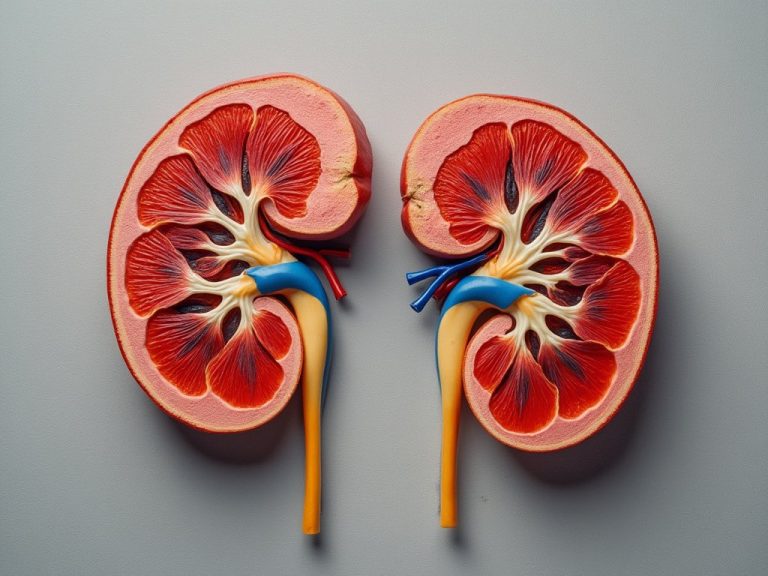Dr. Chimezie Okwuonu, head of the Abia State Specialist Hospital and Diagnostic Centre, is worried about how short kidney failure patients in Nigeria live. Most die within 3–6 months after starting dialysis, mainly because they can’t afford enough dialysis or get a transplant.
Dr. Okwuonu, the first kidney transplant specialist in Southeast Nigeria, said even though the Federal Medical Centre (FMC) in Umuahia has made good progress, most patients with kidney failure still die too soon.
He explained that dialysis is supposed to keep patients alive while they wait for a transplant, but in Nigeria, it’s become a “death sentence” because of high costs and limited treatment.
He said, “Most patients die within three to six months of starting dialysis—unless the dialysis is done properly, which rarely happens here, or they get a kidney transplant.”
Dr. Okwuonu, who also oversees clinical care and quality at FMC Umuahia, shared that while the centre has completed 13 transplants and is working on the 14th, the main problem is still affordability.
He stressed that people aren’t dying because transplants can’t be done, but because they simply can’t pay for them.
“We have the expertise to do transplants,” he said. “But very few can afford the full cost. That’s the biggest issue.”
He added that patients usually can’t survive on just one or two dialysis sessions per week, but that’s all many can afford.
The price of dialysis, medicine, and follow-up is just too high. When people run out of money, they often die,” he explained.
Dr. Okwuonu, who led the first successful kidney transplant in Southeast Nigeria in December 2017, said the centre has made major progress in building local capacity.
“We used to rely on foreign surgeons, but now Nigerians do the surgeries. The time for surgery has dropped from nine hours to five. Our nurses and pharmacists have also grown in skill and number,” he said.
Despite the success, Dr. Okwuonu, now on the African Regional Board of the International Society of Nephrology, says there’s still a long way to go.
“The main problem is money. Most Nigerians can’t afford dialysis or transplants. That’s why they die early,” he said.
He also pointed to the growing number of kidney disease cases, caused by low awareness, late diagnosis, fake herbal remedies, and poorly treated high blood pressure.
“Many people think they have malaria or typhoid again and again, but it’s actually kidney failure. Herbal mixtures and bad hypertension care are big causes,” he warned.
He said their outreach programs show that 7.3% of people in their area have chronic kidney disease.
He believes early diagnosis, cheaper treatment, and government help are key to saving more lives.
When asked about his passion, Dr. Okwuonu said it comes from the seriousness of his work—patients’ lives are often in his hands.
“As a kidney doctor, I may be the last hope for many. I have to give my best so they have a chance to live. That’s what drives me,” he said.
He said giving someone a new life through a transplant is deeply rewarding.
“There’s nothing like seeing a patient full of joy after a successful transplant. That’s the peak of what I do,” he said.
Looking back, he said the transplant program at FMC Umuahia started small and has grown into a model centre.
“We had one kidney doctor in 2017, now we have three. From four nurses, we now have eleven. From one pharmacist, we now have three,” he shared.
He said transplant success is a team effort and praised all those who made it happen.
He also thanked the hospital leaders. Dr. Chuku Abali led the first four transplants, and Prof. Azubuike Onyebuchi has overseen nine more.
Now, other hospitals are taking notice. The University of Port Harcourt Teaching Hospital wants to copy their model.
Even with these wins, he insists that more government support is needed to make a real impact.
“Transplants shouldn’t only be for the rich. The government should fund them like it funds other health services,” he said.
He praised the Abia State Government for its recent support—renovating health centres and supplying dialysis machines.
“Things like health checks during pregnancy visits and health insurance help a lot. But we also need more trained staff and regulation of herbal products,” he added.
He also recommended creating special regional kidney centres and offering subsidized yearly health screenings for early detection.
Looking to the future, Dr. Okwuonu said he wants to grow Nigeria’s pool of kidney donors.
He’s pushing for advanced transplant techniques like blood group mismatched transplants, paired exchanges, and using donors with viral infections safely.
“I was trained in all these, and I’m working to bring them to Nigeria,” he said.
Through his NGO, Beatitudes Kidney Foundation, he continues to raise awareness and offer screenings.
His research has even shaped how hypertension is treated in Abia State’s primary health system.
“We must go beyond talk. We need more transplant centres, trained experts, and most of all, we must stop people from dying just because they can’t pay,” he said.
Dr. Okwuonu also spoke about his international training and recognition. He was chosen for two top kidney care fellowships which have improved his skills greatly.
I trained at the University of Toledo and the University of Virginia in the US. I learned how to handle difficult transplant cases using advanced methods,” he said.
Thanks to his training, patients now stay in the hospital for only 9–10 days after surgery instead of three weeks—cutting infection risks and saving money.
Dr. Okwuonu has also helped shape kidney care policy in Nigeria. He’s spoken at major conferences and helped write the national guidelines for kidney disease.
He was also on the Ministry of Health committee that created the new national rules for organ and tissue transplants, now used nationwide.
Currently, he’s on two major national panels—one for dialysis standards and the other for managing sudden kidney failure.


